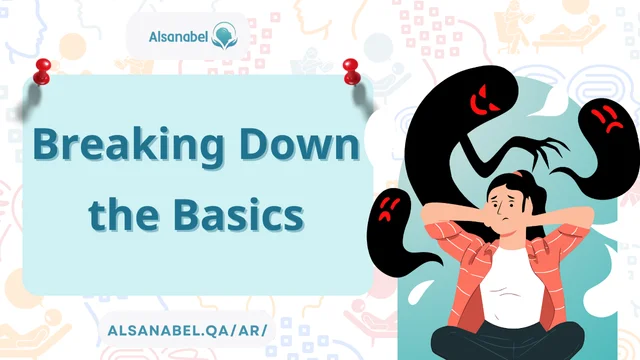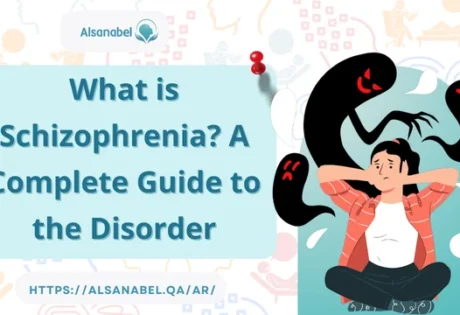
Schizophrenia is a complex and often misunderstood mental health disorder that profoundly impacts the lives of those affected. Despite its prevalence, many people lack clarity about its true nature, leading to stigma and misconceptions. This article provides a comprehensive exploration of schizophrenia meaning, delving into its definition, symptoms, and the effects it can have on daily life. With a clearer understanding, we can better support those living with this condition.
Breaking Down the Basics

What is Schizophrenia?
To truly grasp schizophrenia meaning, it’s essential to first understand its definition. Schizophrenia is a chronic brain disorder characterized by disruptions in thought processes, perceptions, emotions, and social interactions. It affects how a person interprets reality, often leading to hallucinations, delusions, and disorganized behavior. Although it is a lifelong condition, advancements in treatment have made it increasingly manageable.
Definition of Schizophrenia
The definition of schizophrenia encapsulates a psychiatric disorder that impairs a person’s ability to think clearly, manage emotions, make decisions, and relate to others. It is categorized by episodes of psychosis, where individuals lose touch with reality. Understanding this definition helps dismantle myths and creates a foundation for meaningful conversations about the disorder.
Key Characteristics and Symptoms
Understanding Schizophrenia and Its Symptoms
One of the most critical steps in understanding schizophrenia is recognizing its symptoms, which vary widely but are typically grouped into positive, negative, and cognitive categories:
- Positive Symptoms
These include hallucinations (hearing voices or seeing things that aren’t there) and delusions (false beliefs not grounded in reality). For example, an individual may believe they are being followed or that they possess extraordinary abilities. - Negative Symptoms
These involve a reduction in normal emotional and social functions, such as withdrawal from loved ones, lack of motivation, and diminished emotional expression. - Cognitive Symptoms
Cognitive impairments affect memory, attention, and decision-making. People with schizophrenia may find it challenging to concentrate on tasks or retain information.
Symptoms of Schizophrenia
When examining the symptoms of schizophrenia, it’s crucial to understand that they often appear gradually, making early detection difficult. Common signs include paranoia, disorganized speech, inappropriate emotional responses, and severe disruptions in daily life. Awareness of these symptoms can facilitate timely intervention and improve long-term outcomes.
Impact on Daily Life
Schizophrenia can drastically alter an individual’s ability to maintain relationships, pursue education or employment, and handle routine activities. For instance, hallucinations may create significant barriers to communication, while cognitive deficits might make managing finances or adhering to a schedule difficult. However, with appropriate support, many people lead fulfilling lives.
Causes and Risk Factors
While the exact cause of schizophrenia remains unknown, research points to a combination of genetic, biological, and environmental factors:
- Genetics
A family history of schizophrenia significantly increases the likelihood of developing the disorder. - Neurochemical Imbalances
Disruptions in neurotransmitters like dopamine and glutamate are closely linked to the condition. - Environmental Triggers
Stressful life events, prenatal infections, and substance abuse may act as catalysts for those already predisposed to the disorder.
Diagnosis and Treatment Options
Diagnosis
Diagnosing schizophrenia is a complex process requiring a thorough evaluation by a psychiatrist at Al Sanabel Specialized Psychiatric Center In Qatar. Clinicians typically use standardized criteria, such as those in the DSM-5, to assess symptoms and rule out other medical or psychiatric conditions.
Treatment Approaches
Effective management often involves a combination of therapies:
- Medications
Antipsychotics are the cornerstone of schizophrenia treatment, helping to reduce hallucinations, delusions, and agitation. - Psychotherapy
Cognitive-behavioral therapy (CBT) equips patients with strategies to cope with distorted thoughts and improve daily functioning. - Support Services
Vocational training, social skills programs, and community support groups play a critical role in enhancing the quality of life for those with schizophrenia.
Addressing Myths and Misconceptions
One significant barrier to effective treatment is the stigma surrounding schizophrenia. Contrary to common myths, people with schizophrenia are not inherently violent. Instead, they are more likely to be victims of violence due to their vulnerability. Public education and advocacy are vital to breaking down these misconceptions.
Family and Community Support
Family members often serve as a lifeline for individuals with schizophrenia. Offering emotional support, encouraging treatment adherence, and fostering a stable environment can significantly improve outcomes. Community-based initiatives and support groups also provide valuable resources for both patients and their families.
Answers to Frequently Asked Questions

1. What are the early signs of schizophrenia?
Early signs include social withdrawal, difficulty concentrating, unusual thoughts, and changes in mood. Recognizing these signs early can facilitate prompt intervention.
2. How is schizophrenia treated?
Treatment typically involves antipsychotic medications, psychotherapy, and support services. Each treatment plan is tailored to the individual’s needs.
3. Can schizophrenia be cured?
While there is no definitive cure, effective treatment enables many individuals to manage their symptoms and lead productive lives.
4. What causes schizophrenia?
A combination of genetic predisposition, neurochemical imbalances, and environmental factors contributes to the development of schizophrenia.
5. How can family members support someone with schizophrenia?
By educating themselves about the disorder, maintaining open communication, and encouraging consistent treatment, family members can provide invaluable support.
Schizophrenia meaning goes beyond a simple definition; it encompasses the lived experiences of millions worldwide. By deepening our understanding of what is schizophrenia, its causes, and its impact, we can foster a more inclusive and supportive society. With early intervention, tailored treatments, and strong support systems, individuals with schizophrenia can overcome challenges and lead fulfilling lives.

